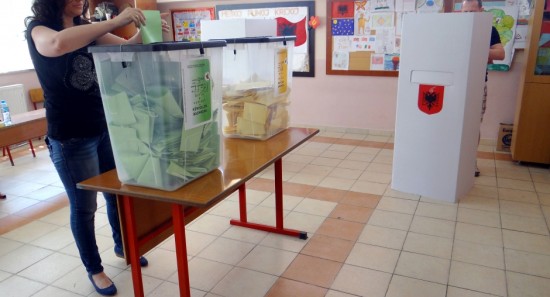OSCE Chides Albania Over June Local Elections
In its report on the June 21 elections, the OSCE/ODIHR praised the calm environment but raised concerns about the voting list, pressure on voters, media bias and the use of government resources.
The OSCE/ODIHR Election Observation Mission offered about 23 recommendations to Albania to improve elections standards in its final report on the June 21 local election, published on Tuesday.
The report raised concerns about the campaign, the process and the administration of justice related to electoral disputes.
It also praised the relatively calm atmosphere on election day and improvements in the language used by candidates during the contest.
“The campaign environment was peaceful, except for isolated incidents. Fundamental freedoms of expression and assembly were respected,” the report said.
However, it also said several standards envisioned in the 1990 OSCE Copenhagen Document were breached.
“We received widespread allegations of pressure by incumbents from the national ruling coalition on public sector employees… including requirements to attend campaign events and to secure votes as well as threats of dismissal,” it said.
“The allegations, together with observed instances on election day, raised concerns about voters’ ability to cast their vote “free of fear of retribution”, as required by… the 1990 OSCE Copenhagen Document,” the report added.
The OSCE report also said state resources were used by the government in their electoral campaign.
“Senior figures from the Socialist Party and Socialist Movement for Integration handed out property legalization certificates at campaign events and a number of AEA candidates used state events and resources for campaign purposes,” the report stated.
“These blurred the separation between state and party and breached paragraph 5.4 of the 1990 OSCE Copenhagen Document, which provides for ‘a clear separation between State and political parties,’” it added.
The local elections on 21 June 2015 saw the election of 61 mayors and 1,595 councillors. The leftwing ruling coalition won 63 per cent of the votes and 45 out of 61 municipalities.
BalkanInsight
10 September 2015

